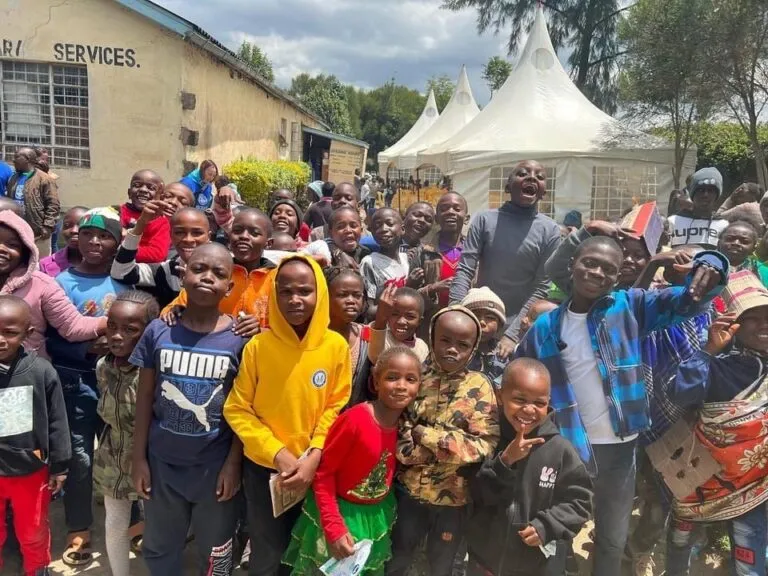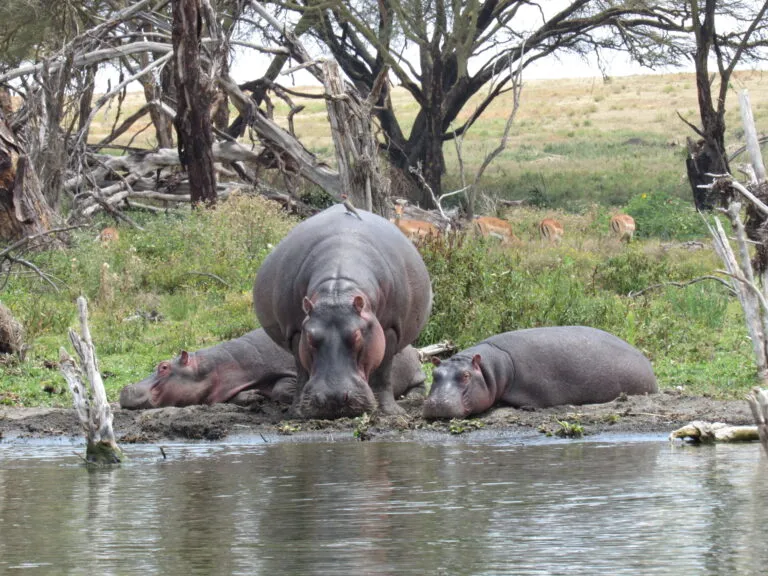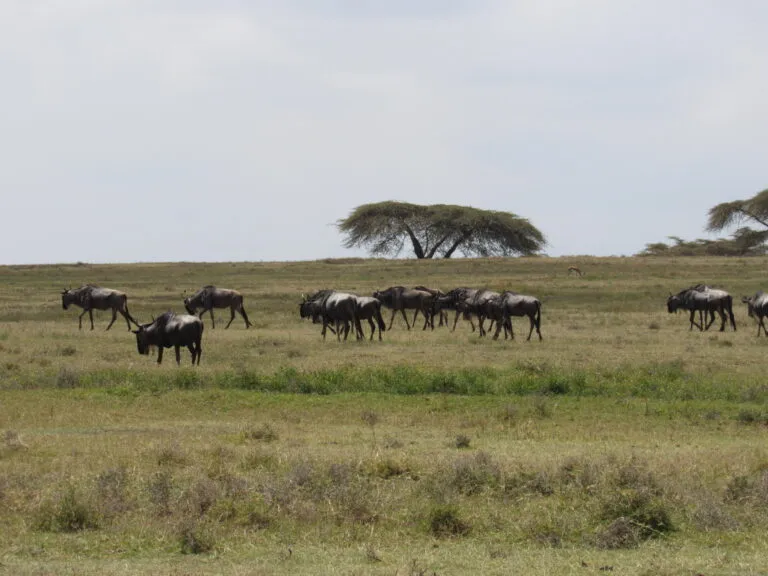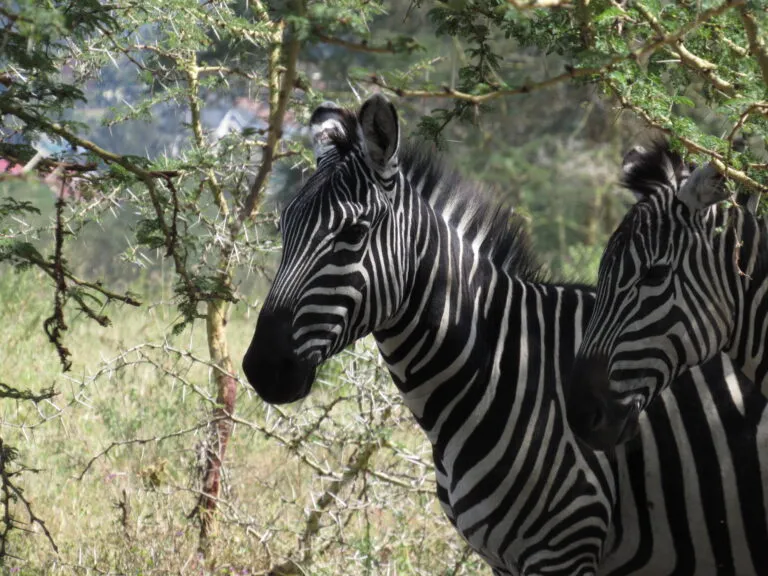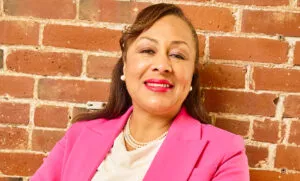Graduate students inspired by Kenya’s culture, people, and enthusiasm for education
Education Department graduate students journeyed to Kenya last summer for a transformative experience filled with cultural connections, profound reflections and of course, lions, zebras, and giraffes.
Led by Christina Kaniu, professor of education, the group included 10 students, mostly teachers working in Central Massachusetts schools, who immersed themselves in the local community while in Kenya, particularly at a public library in a rural area. The students provided workshops, instruction, and activities for the children during their school break, fostering cultural exchange and learning.
Christina Kaniu’s husband, Eric Kaniu, a native of Kenya, served as the group’s translator and cultural liaison. The idea for the trip arose when Professor Kaniu traveled to Kenya in 2018 during her sabbatical. It was a chance to visit her husband’s family and also explore opportunities to do a faculty-led trip to Kenya.
“We went to visit Eric’s aunt, who works at a public library in a very rural section of central Kenya,” Kaniu said. “When we walked into the library it was just packed full of children. In fact, they had to turn people away because there wasn’t enough space. So, I asked her about it, and she said they’re on their school break and I was like, ‘Okay, so why are they at the library?’ She explained that their parents send them to the library to study.”
The eighth graders were studying for their exams to get into high school, while the younger children were there to read or do packets of schoolwork they had been assigned to complete over their break. “So, my wheels started turning and I thought, ‘Maybe we could visit during a school break and provide workshops and instruction and activities for the young students to do when we’re there,’” Kaniu said.
Kaniu made plans to lead a return trip in the summer of 2020, but the pandemic intervened. Finally, everything fell into place last summer, and the group finally headed off for a 10-day visit in August.
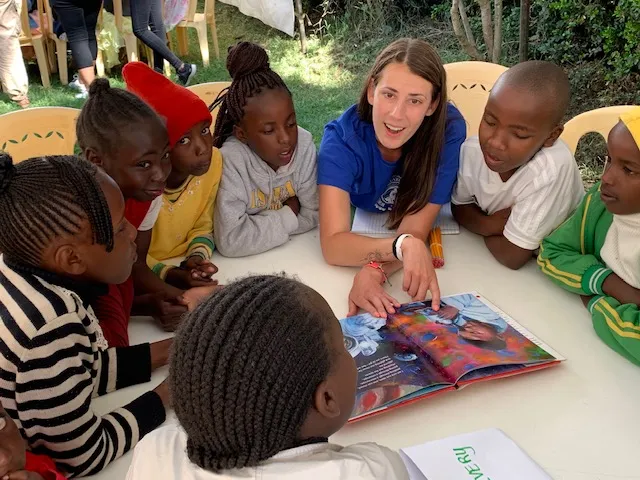
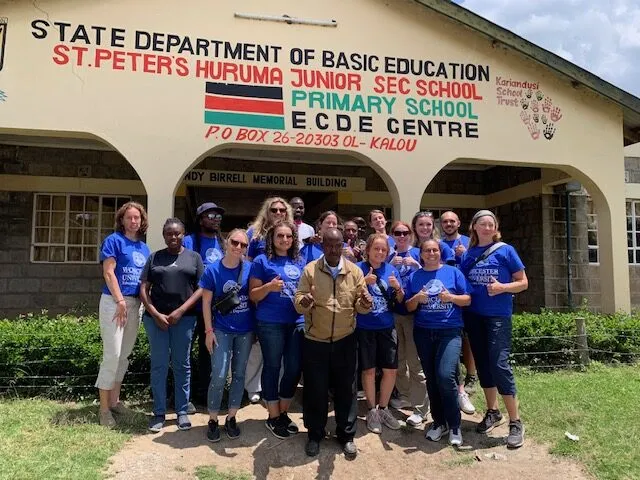
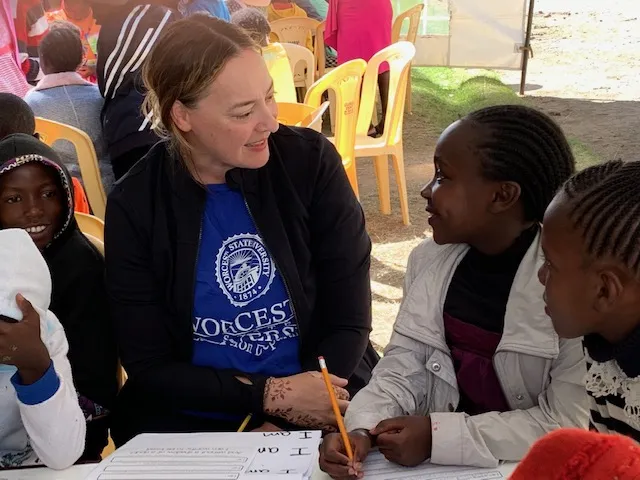
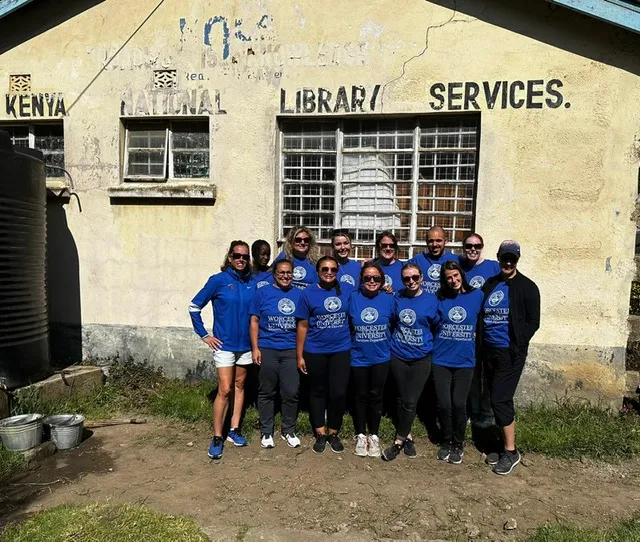

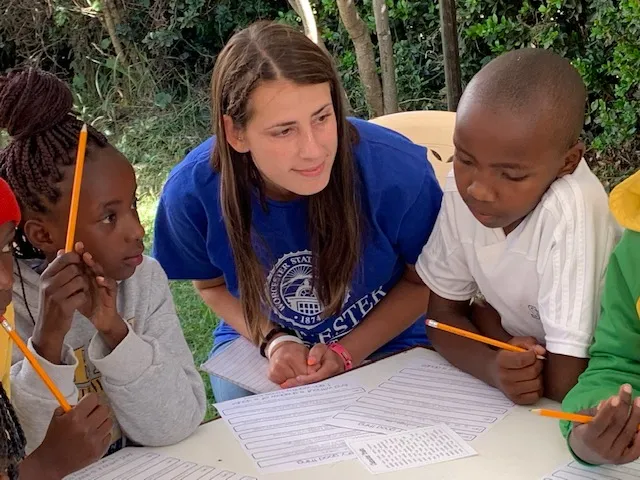
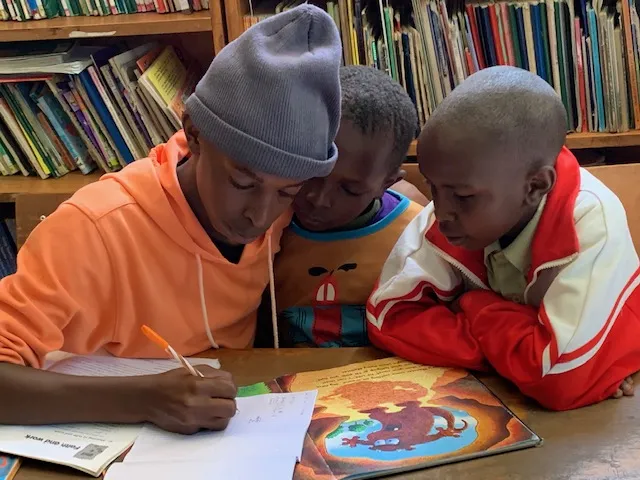
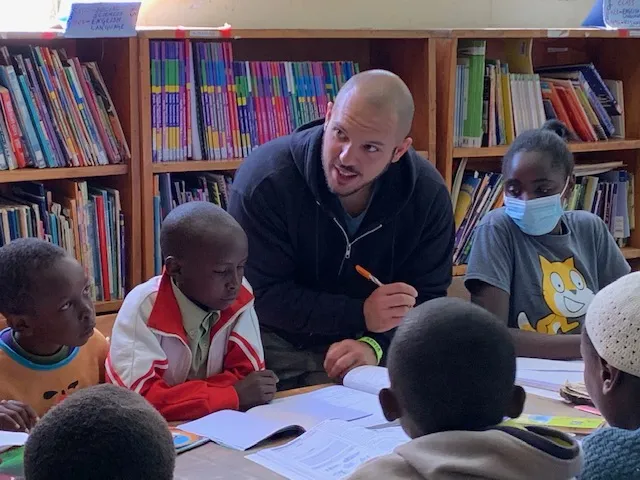
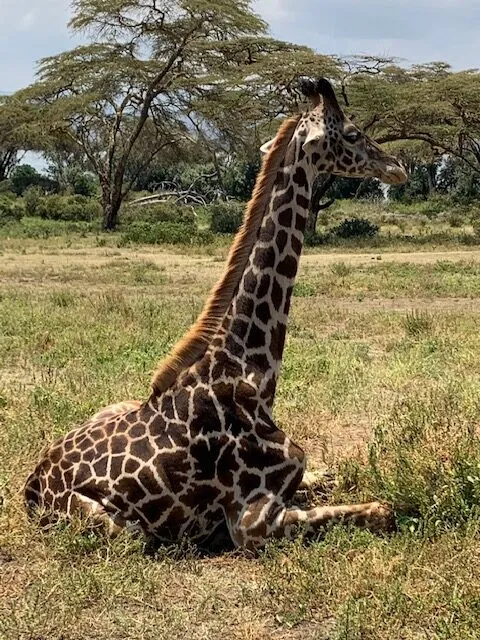
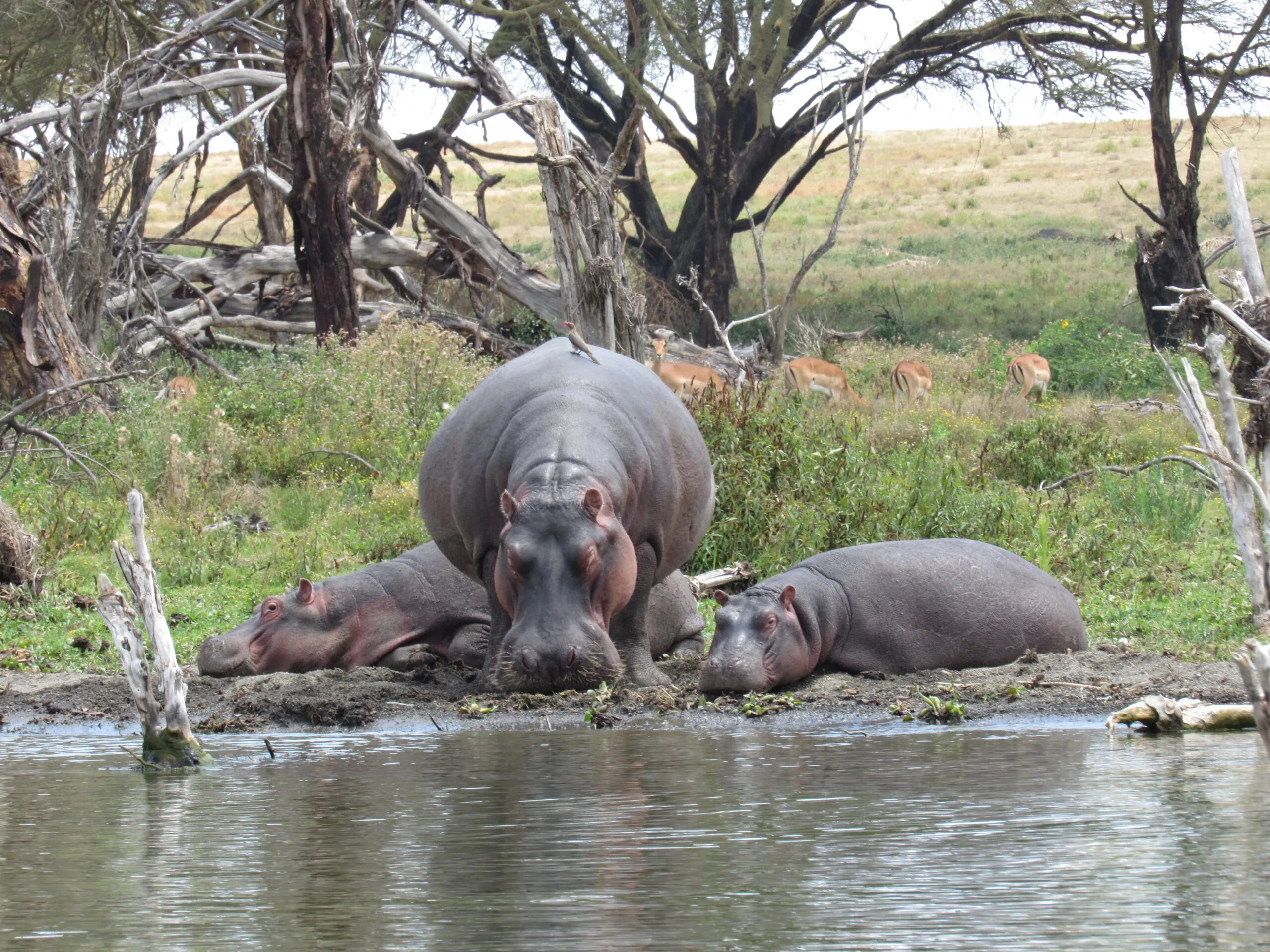
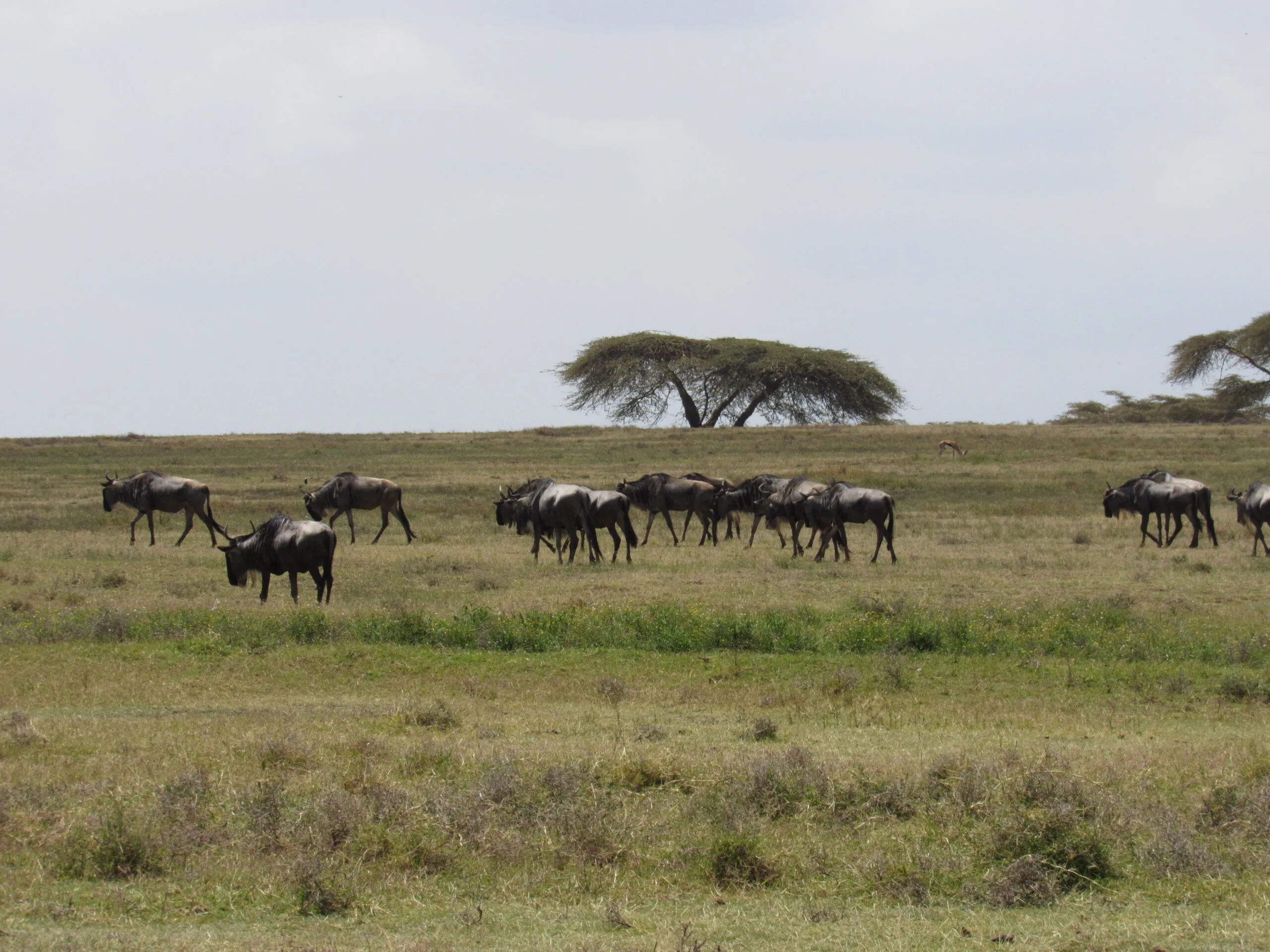
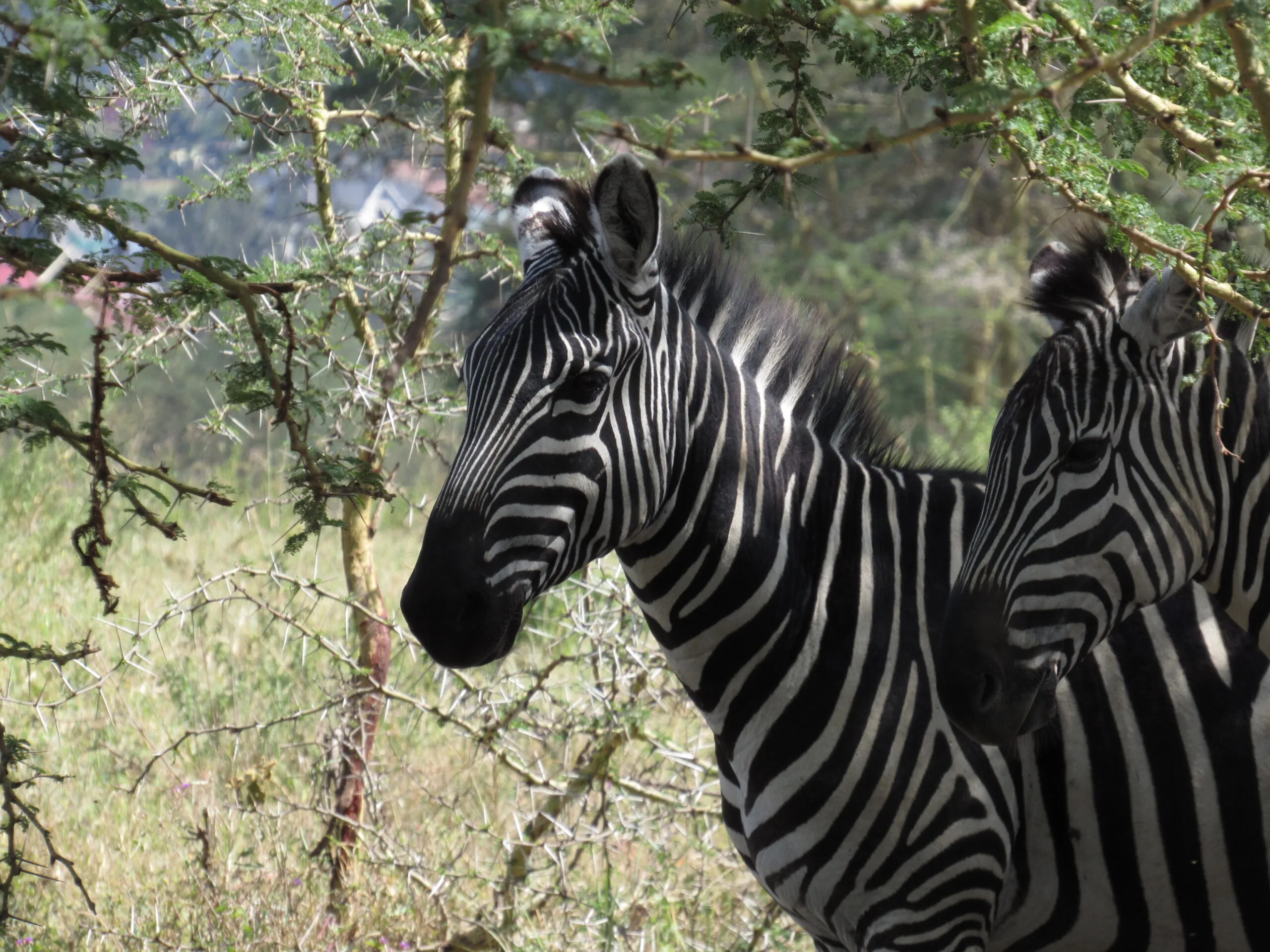
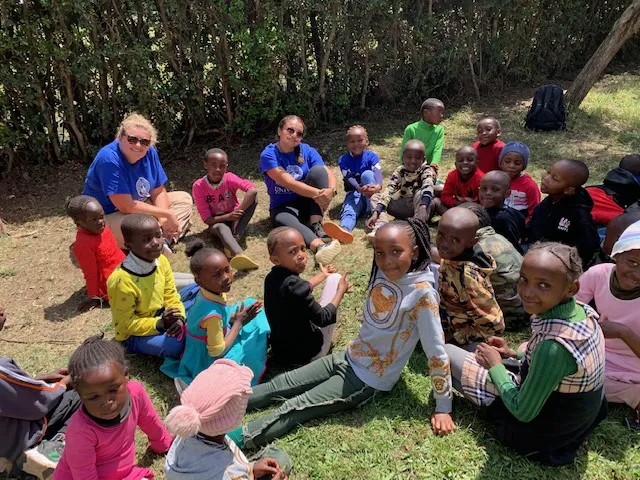
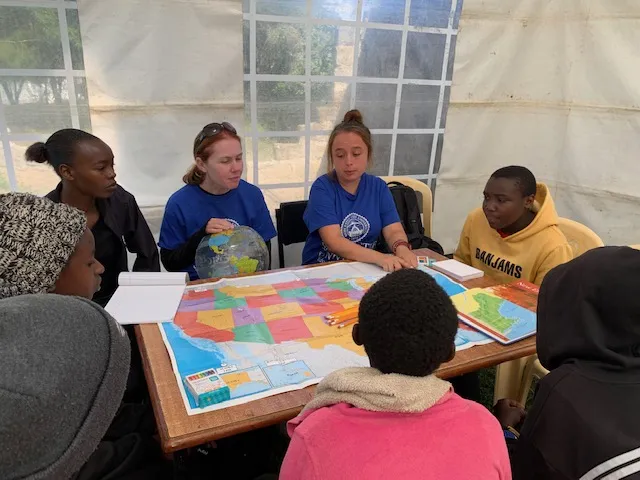
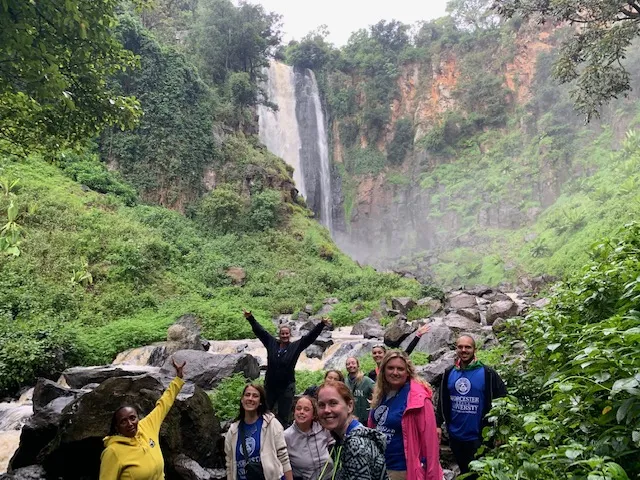
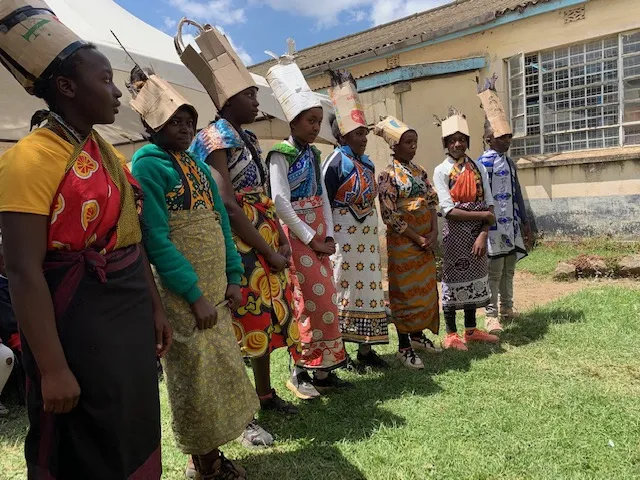
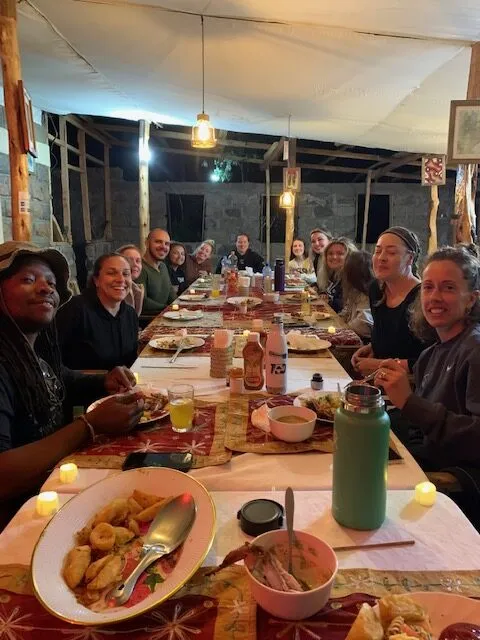
In addition to the library and local schools, the travelers also made excursions to Kenyan attractions, including a tour of Nairobi, the capital city, and a hike to Thompson Falls, a majestic 234-foot equatorial waterfall. They also went on a safari to Nakuru National Park and visited Crescent Island, a wildlife sanctuary accessible only by boat that is home to a variety of animals, including hippos, giraffes, gazelles, monkeys, and zebras.
“We were surprised by the incredible beauty of Kenya, especially Crescent Island,” Kaniu said. “We were amazed by the opportunity to do a walking safari there and be in such close proximity to docile animals like giraffes and antelopes.”
The travelers said they gained knowledge and many insights about Kenya’s culture, people, and education system. They had interactions with the local children and teachers at the library that they described in glowing terms like “heartwarming” and “deeply moving.”
“My world view definitely has changed because of this experience,” Monica Groulx, a psychologist in the Worcester Public Schools, said. “I have never traveled outside of the United States before, so I’ve never experienced firsthand how people live outside of my little bubble. It was eye-opening to see how differently people in the Kenyan culture live when compared to how society is run here. We value money, material things, and status and think that we need these things to be happy. Some of these people have next to nothing but will greet you with the biggest smile you’ve ever seen and help you with whatever you need.”
The graduate students also had the opportunity to teach lessons about the United States, sharing their own culture and experiences. They witnessed the emphasis on education in Kenya and the dedication of the students to excel academically.
Sara Root-Simone, a K-5 ESL teacher in the Wachusett Regional School District, said the experience gave her a greater understanding of the students and families from Africa who are moving into the districts the graduate students work in. She was impressed by “the value placed on education, the deference given to teachers by families and how fundamental it is to give students every opportunity to succeed with challenging and rigorous work. It also helped me to understand that resources and time are limited in places like Kenya and, as a result, many students moving in from African countries may need just a little extra help.”
There were some challenges traveling in a country less developed and much different than their own. For instance, the roads, especially in rural areas, were bumpy, and it took a long time to cover short distances. Additionally, the travelers found a different concept of time in Kenya, where things might not happen on time or might take longer than expected. This required the travelers to be patient and open minded.
The trip left a profound impact on the graduate students, expanding their understanding of education and inspiring them to make changes in their own classrooms. They called the experience “magical” and “extraordinary.” Some said it was difficult to find words to fully capture its significance.
Meaghan Calkins, a science teacher at Clinton High School, was impressed by the importance students placed on education. She observed that Kenyan children were highly motivated to read and learn.
“I have never seen so many children in one library who are genuinely excited to be there,” Calkins said. “My heart was so full to see all of them reading and not one cell phone out. They realize how important education is and how it can change the trajectory of their lives. Sadly, I feel like many American students do not have this sense of appreciation.”
Their Kenya experience allowed the teachers to gain new perspectives and insights that they could apply in their own classrooms. It also helped them appreciate the resources and opportunities available to them in their own classrooms and motivated them to make the most of these resources for the benefit of their students.
Lindsey Berube ’17, a special education teacher at the Meetinghouse School in Westminster, was impressed with how welcoming the Kenyan people were, not only the children in the library but in Samawati, the name for the group of cottages where the group stayed.
“The heartwarming feeling I got just from how important our presence was at the library was so indescribable,” she said. “The way we were treated there and at Samawati was incredible. Everyone was so happy to see us, and I appreciate all the people we met so much.”
Berube recalled the reaction of people in rural Kenya, an area that doesn’t see many tourists. “I will never forget seeing people outside as we passed them in our bus,” she said. “The way they looked at us at first and then to see their faces change as they smiled and waved just filled my heart in a way like never before.”
Joseph Gencarelli, a math teacher at North High School in Worcester, said he gained a new perspective on education in Kenya, realizing that despite the lack of resources and opportunities, the students were well educated, showed maturity, and had a positive attitude towards learning. This challenged his biases about developing nations and their educational systems.
“The trip made me go through a few changes in my thinking and mindset,” Gencarelli said. “I came in with the assumption that the students there were in worse conditions than in the USA, but when the kids had the chance to write about what they thought and felt about the US and life in Kenya, they produced fine writing that showed a maturity far beyond probably the vast majority of our public-school students.”
He was impressed with the resourcefulness that kids and adults showed throughout Kenya. He saw kids using trash buckets as swings and bicycle tires as hula hoops and making soccer balls by inflating plastic bread bags. Seeing what could be accomplished in schools with very minimal resources—an entire library was a bookshelf maybe 20 feet long—highlighted for Gencarelli the importance of teamwork, not letting opportunities go to waste, and providing an environment of high expectations for students.
The teachers said the trip also provided them with a deeper understanding of the challenges and experiences of students from diverse backgrounds, important insights for educators in a gateway city like Worcester. Interacting with students from Kenya allowed them to empathize with the difficulties faced by international students and consider how they could better support and accommodate these students in their classrooms.
“I have a whole new perspective and sensitivity towards my students who arrive from another country,” Calkins said. “I can only imagine how scary it must be to come to America, enter a school system that is fundamentally different from what you might be used to, and attempt to conform to the traditional cultures and mannerisms. How scary it must be to arrive and nothing looks like it did back home. I now understand how I can help during that transition and the importance of incorporating examples from various cultures into your curriculum.”
Alysia Gonzalez, a special ed teacher in the Brockton Public Schools, had a similar reaction. “I grew up in an Afro-Latina household and my elders would say things like, ‘Finish your food because there are starving kids in Africa,’” she said. “The biases and stereotypes were passed from generation to generation. If I was able to travel back in time to share this experience with my younger self, I would educate my mind into knowing that these children and adults are happy, appreciative, intelligent, and innovative. Kenyan residents seek what they require to survive and not what they need just to be trendy or to show off.”
Kaniu said she is hoping to lead student tours to Kenya perhaps every other year. She also is trying to put together a scholarship fund and other support for Kenyan students who want to come to the United States, which many of the young students the group met on the trip were eager to do. It’s an arduous process, however, especially for kids from rural areas like the one they visited.
“Even getting a student visa sometimes is very difficult,” she said. “It’s a hardship for them in the sense that they’re about three hours from Nairobi by car and they would have to go there to do interviews at the American Embassy and a whole lot of other hoopla that needs to get done.”
Plans are a long way from being finalized, but Kaniu is inspired to continue work on the project because the Kenyan students had made such a positive and lasting impression.
“There are so many students there who are brilliant. They have so much potential. So, I’ve been asking myself ‘How can we support them to reach their true potential in the future?’”

